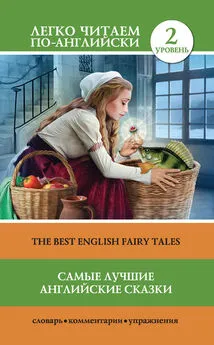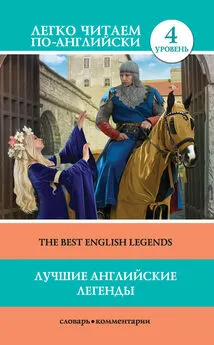Томас Харди - Лучшие любовные истории / The Best Love Stories
- Название:Лучшие любовные истории / The Best Love Stories
- Автор:
- Жанр:
- Издательство:неизвестно
- Год:2017
- Город:Москва
- ISBN:978-5-17-104435-0
- Рейтинг:
- Избранное:Добавить в избранное
-
Отзывы:
-
Ваша оценка:
Томас Харди - Лучшие любовные истории / The Best Love Stories краткое содержание
Лучшие любовные истории / The Best Love Stories - читать онлайн бесплатно ознакомительный отрывок
Интервал:
Закладка:
Лучшие любовные истории / The Best Love Stories
Составление, подготовка текста, комментарии и словарь Е. В. Глушенковой
© ООО «Издательство АСТ»
Rappachini’s Daughter
After Nathaniel Hawthorne (1804–1864)
A young man, named Giovanni Guasconti, came, very long ago, from the more southern region of Italy, to pursue his studies at the University of Padua. Giovanni, who did not have very many gold ducats in his pocket, took lodgings in a high and gloomy room of an old house which looked worthy to have been the palace of a Paduan noble, in fact, a family mansion. Being heartbroken, which was natural to a young man for the first time out of his native places, Giovanni sighed heavily as he looked around the empty and ill-furnished apartment.
“Holy Virgin, [1] Holy Virgin – Пресвятая Дева
signor!” cried old Signora Lisabetta, who, won by the youth’s remarkable beauty, was kindly trying to give the room a habitable air. [2] a habitable air – жилой вид
“Why should [3] Why should – c какой стати
a young man sigh like that? Do you find this old mansion gloomy? Then, put your head out of the window, and you will see as bright sunshine as you have left in Naples.”
Guasconti mechanically did as the old woman advised, but could not quite agree with her that the Paduan sunshine was as cheerful as that of southern Italy. Such as it was, however, it fell upon a garden beneath the window with a variety of plants, which seemed to have been cultivated with exceeding care. [4] which seemed to have been cultivated with exceeding care – которые, по-видимому, очень заботливо возделывались
“Does this garden belong to the house?” asked Giovanni.
“No; that garden is cultivated by the own hands of Signor Giacomo Rappaccini, the famous doctor, who has been heard of as far as Naples. It is said that he turns these plants into medicines that are as strong as a charm. Often you may see the signor doctor at work, and perhaps the signora, his daughter, too, gathering the flowers that grow in the garden,” answered old Lisabetta.
The old woman had now done what she could to make the room look better; and left.
Giovanni looked down into the garden beneath his window. From its appearance, he judged it to be one of those botanic gardens which had been in Padua earlier than anywhere in Italy or in the world. Or, probably, it might once have been the garden of a rich family; for there was the ruin of a marble fountain in the centre, but so shattered that it was impossible to see the original design from the chaos of remaining fragments. The water, however, continued to sparkle in the sun. All about the pool into which the water fell grew various plants, that seemed to require plenty of moisture for the gigantic leaves and gorgeous flowers. There was one shrub in particular, set in a marble vase in the middle of the pool, that had purple blossoms, each of which seemed bright enough to illuminate the garden. Every portion of the garden had plants and herbs, carefully cultivated.
While Giovanni stood at the window he heard a rustling behind a screen of leaves, and became aware that a person was at work in the garden. His figure soon came into view. It was a tall, emaciated, and sickly-looking man, dressed in a scholar’s black cloak. He was elderly, with gray hair, a thin, gray beard, and a face singularly marked with intellect, but which could never, even in his more younger days, have expressed much warmth of heart.
This scientific gardener examined every shrub with great care: it seemed as if he was looking into their nature, and discovering why one leaf grew in this shape and another in that, and why such and such flowers differed among themselves in color and perfume. Nevertheless, in spite of his deep interest, there was no intimacy between himself and these plants. On the contrary, he avoided their actual touch or the direct inhaling of their odors with a caution that impressed Giovanni most disagreeably. The man behavior was as if he was walking among savage beasts, or deadly snakes, or evil spirits, which, should he allow them one moment of license, would wreak upon him some terrible fatality. The young man was frightened to see such an attitude in a person cultivating a garden, the most simple and innocent of human actions. Was this garden, the Eden of the present world? And this man, seeing harm in what his own hands grew, – was he the Adam?
The gardener, while plucking away the dead leaves or pruning the shrubs, defended his hands with a pair of thick gloves. When he came to the magnificent plant that hung its purple blossoms beside the marble fountain, he placed a mask over his mouth and nose. Finding his task still too dangerous, he drew back, and called loudly, “Beatrice! Beatrice!”
“Here am I, my father. What do you want?” cried a rich and young voice from the window of the opposite house. “Are you in the garden?”
“Yes, Beatrice,” answered the gardener, “and I need your help.”
Soon there emerged from under a portal the figure of a young girl, dressed with taste like a flower, beautiful as the day. She looked full of life, health, and energy. Yet Giovanni looked down into the garden; he had an impression as if here was another flower, as beautiful as other flowers, more beautiful than the richest of them, but still to be touched only with a glove, not to be approached without a mask. As Beatrice came down the garden path, he saw her inhale the odor of several of the plants which her father had avoided.
“Here, Beatrice,” said the father, “much work must be done to our chief treasure. Yet, I am not strong enough for it. I fear, this plant must be consigned to your sole charge. [5] this plant must be consigned to your sole charge – это растение нужно полностью вверить твоим заботам
”
“And will gladly I do it,” cried again the rich tones of the young lady, as she came up to the magnificent plant and opened her arms as if to embrace it. “Yes, my sister, it will be Beatrice’s task to serve you; and you will reward her with your kisses and perfumed breath.”
Then, with all the tenderness in her manner, she took care of the plant.
In the morning, Giovanni’s first movement was to throw open the window and gaze down into the garden which had seemed so mysterious in the previous evening. He was surprised and a little ashamed to find how real and matter-of-fact the garden proved to be. [6] the garden proved to be – оказался сад
The young man was happy that, in the heart of the city, he had the privilege of enjoying this place of lovely vegetation. Neither Dr. Giacomo Rappaccini, nor his brilliant daughter, were now visible.
On that day he paid a visit to Signor Pietro Baglioni, professor of medicine in the university, a physician of eminent reputation to whom Giovanni had brought a letter of introduction. [7] a letter of introduction – рекомендательное письмо
The professor was an elderly person, apparently good-natured. He kept the young man to dinner, and they had a very nice conversation, especially when warmed by wine. Giovanni, thinking that men of science, living in the same city, must be familiar with one another, mentioned the name of Dr. Rappaccini. But the professor did not respond with so much cordiality as he had expected.
“It will not do [8] it will not do – не годится
for a teacher of the art of medicine,” said Professor Pietro Baglioni, in answer to a question of Giovanni, “not to respect such a well-known physician as Rappaccini; but, on the other hand, [9] оn the other hand – с другой стороны
I should not permit a worthy young man like you, Signor Giovanni, the son of an old friend, to get wrong ideas. Dr. Rappaccini has as much science as any member of the faculty in Padua, or all Italy; but there are certain grave objections to his professional character.”
“And what are they?” asked the young man.
“Has my friend Giovanni any disease of body or heart, that he is so interested in physicians?” said the professor, with a smile. “But as for Rappaccini, it is said of him – and I, who know the man well, can answer for its truth – that he cares more for science than for man. His patients are interesting to him only as subjects for some new experiment. He would sacrifice human life, his own among others for the sake of adding a grain to his accumulated knowledge.”
“I think he is an awful man,” remarked Guasconti. “Are there many men capable of such a love of science?”
“God forbid, [10] God forbid – Боже упаси
” answered the professor. “It is his theory that all medicinal virtues are in those substances which we call vegetable poisons. He cultivates them with his own hands, and they say he has even produced new varieties of poison. Now and then, [11] now and then – время от времени
he has effected a marvellous cure; [12] has effected a marvellous cure – добился чудесного исцеления
but such instances of success, – to my mind, are probably the work of chance – but he should be responsible for his failures, which may justly be considered his own work.”
“I do not know, most learned professor,” said Giovanni, – “how dearly this physician may love his art; but there is one object more dear to him. He has a daughter.”
“Aha!” cried the professor, with a laugh. “So now our friend Giovanni’s secret is out. You have heard of this daughter, whom all the young men in Padua are wild about, though not half a dozen have ever had a chance to see her face. I know little of the Signora Beatrice save that Rappaccini is said to have instructed her deeply in his science, and that she already can fill a professor’s chair. Perhaps her father is preparing her for mine!”
Guasconti returned to his lodgings a little heated with the wine he had drunk, and which caused his brain to swim with strange fantasies about Dr. Rappaccini and the beautiful Beatrice. On his way he bought a bouquet of flowers.
Going up to his room, he seated himself near the window, so that he could look down into the garden with little risk of being discovered. In the sunshine, the strange plants were now and then nodding gently to one another. In the middle, by the shattered fountain, grew the magnificent shrub, with its purple flowers all over it; they looked back again out of the pool. At first there was nobody in the garden. Soon, however, – as Giovanni had half hoped, half feared – a figure appeared beneath the portal, and came down between the rows of plants, inhaling their various perfumes as if she were one of those beings of an old tale that lived upon sweet odors. On seeing Beatrice again, the young man was startled how much her beauty exceeded his recollection of it; so brilliant, its character was so vivid. Seeing her face better than on the former occasion, he was struck by its sweetness. He observed, or imagined, an analogy between the beautiful girl and the gorgeous shrub that hung its wonderful flowers over the fountain, – probably due to the color of her dress.
Approaching the shrub, she threw open her arms, and embraced its branches.
“Give me your breath, my sister,” exclaimed Beatrice; “for I am faint with common air. And give me this flower of yours, which I shall place close beside my heart.”
Читать дальшеИнтервал:
Закладка:
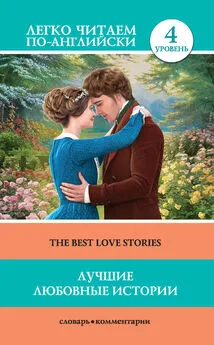

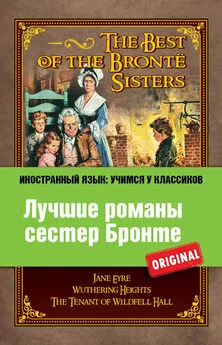
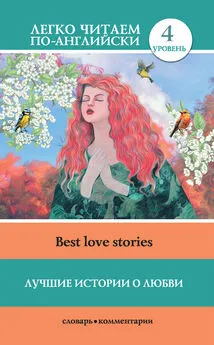

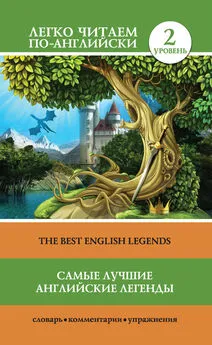
![Владимир Пресняков - The Best [Авторский сборник]](/books/1067616/vladimir-presnyakov-the-best-avtorskij-sbornik.webp)

